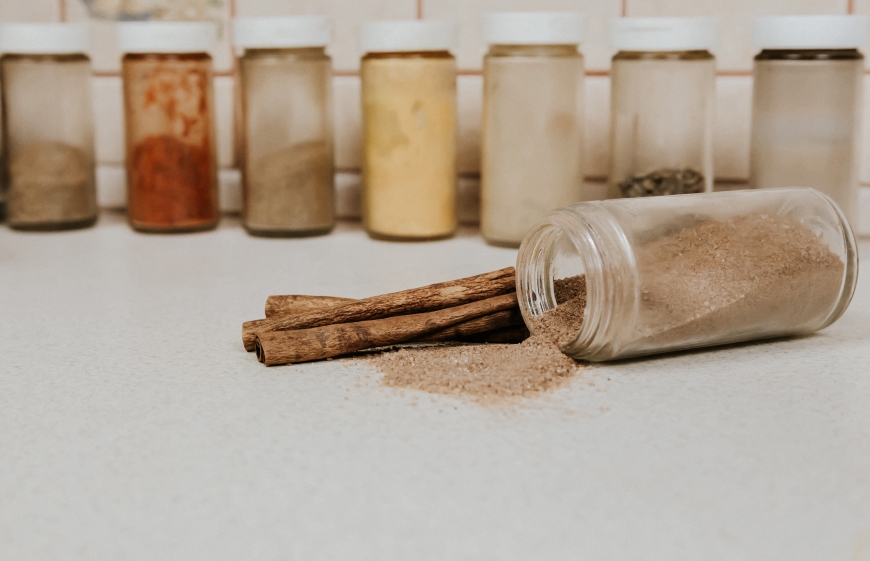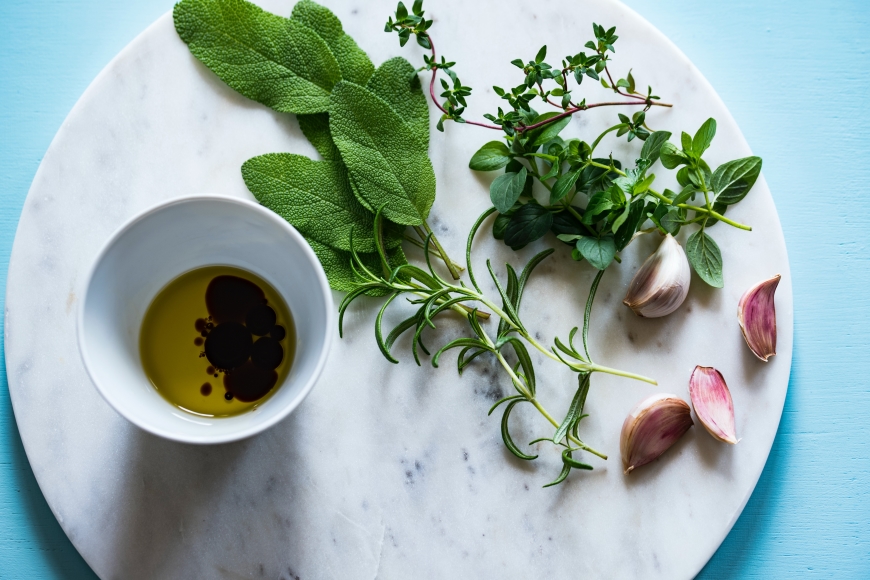The Marvels of Cinnamon
 Cinnamon is among the most popular healing spices on the planet. This comes from the bark of the cinnamon tree, which holds vital healing properties. Above all, this is common to nearly all regions of the world – from Latin America to Asia. You’ll find that it can fight microbes, inflammation, diabetes, and free radical activity. Thus, it’s no surprise that it ranks as the second most common spice in the USA and Europe, after black pepper.
Cinnamon is among the most popular healing spices on the planet. This comes from the bark of the cinnamon tree, which holds vital healing properties. Above all, this is common to nearly all regions of the world – from Latin America to Asia. You’ll find that it can fight microbes, inflammation, diabetes, and free radical activity. Thus, it’s no surprise that it ranks as the second most common spice in the USA and Europe, after black pepper.
In fact, it has been in use since 2000 BCE in ancient Egypt. At this time, it treated coughs, throat soreness, and arthritis. This was a special gift for kings and the royalty as it was sparsely available. However, today you can find this across supermarkets at an affordable price.
You can find this spice in its whole form (bark) or as a powder. Most people add this to desserts and baked goods. Alternatively, you can add it to beverages (such as tea) or have it with fruit. For instance, cinnamon goes well with banana or apple.
Here are a couple of benefits of this spice in detail.
Treats Microbial Illnesses
Various studies show that cinnamon oil can treat fungal illnesses and infections. For instance, a 2016 laboratory study shows that it can attack or prevent Candida fungi, which may enter the bloodstream. In addition, it cease the growth of forms such as listeria and salmonella. This is namely because of its antibacterial nature which can fight infections. In this manner, it can also improve oral health.
Improves Brain Power
One common pitfall which comes with ageing is neurodegenerative diseases. This is the slow decline of brain cell structure and function. As a result, it can cause conditions such as Parkinson’s and Alzheimer’s. In fact, two compounds in cinnamon can prevent buildup of the Tau protein, which can cause these illnesses. For instance, among mice, this spice can protect neural and motor functioning, and normalise neurotransmitter levels.
With regards to Alzheimer’s in particular, the cinnamon bark contains an enzyme contains the CePPT, which prevents symptoms from developing. For instance, they had lesser issues of amyloid plaques, as well as thinking and reasoning abilities. Hence, cinnamon extract in particular can be of use to therapy for Alzheimer’s.
Prevents HIV
HIV can attack your immune system and eventually lead to AIDS. Thankfully, some studies show that the Cassia form of cinnamon can fight against HIV-1, which is the most common form among humans. Similarly, a 2000 study finds that 69 lab samples of this spice can lower overall HIV activity. Thirdly, a 2016 lab study shows that cinnamon extract can enhance anti-HIV activity. To clarify, this does not imply that foods with cinnamon can prevent HIV. Rather, cinnamon extract can be of use in HIV treatment.
Prevents Multiple Sclerosis
Multiple Sclerosis (MS) is a condition which affects the central nervous system (CNS) – namely your brain, spinal cord, and optic nerves. At a basic level, it can cause blurred vision, numbness, and tingling. Finally, it can cause vision loss and mobility problems. Cinnamon, in response, can protect regulatory T-cells (Tregs) which regulate immunity. In fact, studies among mice show that this spice can prevent the loss of T-cell specific proteins. Further, it can restore myelin levels, which MS can destroy.
Similarly, a mixture of cinnamon powder and water can combat CNS inflammation. In fact, it can benefit parts of the brain as well.
Lowers Effects of High Fat Meals
Researchers in 2011 find that antioxidant-rich diets, with spices such as cinnamon, can counter effects of high-fat meals. The study monitored 6 subjects, who ate dishes containing a spice blend (14 grams). In response, blood tests show that antioxidant activity went up by 13%, while insulin and triglyceride levels fell by 21% and 31% respectively.
Enabled Cardiac Health
Cinnamon contains various compounds which can boost cardiac health. For instance, a 2014 study finds that rats with long-term cinnamon and aerobic treatment had better heart health than those without it. Various studies among humans prove this as well. First, a study shows that just half a teaspoon of this spice can positively affect blood markers among type 2 diabetic patients. Similarly, another larger review of studies shows that a cinnamon dose of just 120 milligrams per day can enhance these effects.
In addition, some animal studies show that cinnamon consumption can lower blood sugar levels. For instance, a 2015 review of studies among 60 type 2 diabetes patients shows that a dosage of 6 grams cinnamon for 1-3 months can lower serum glucose, triglyceride and cholesterol levels. Namely, it can lower both LDL and overall cholesterol levels. However, another 2012 study shows that cinnamon, calcium, and zinc have little to no effect on blood pressure levels of type 2 diabetic patients. Similarly, another 2012 study shows that cinnamon has questionable effects on blood glucose.
In short, further human studies can help confirm findings.
Improves Insulin Sensitivity
The insulin hormone regulates metabolism, energy use, and blood sugar transportation. Unfortunately, insulin resistance is a condition which inhibits this function. As a result, it can cause conditions ranging from type 2 diabetes to metabolic syndrome. Thankfully, cinnamon can mimic insulin and restore its function in your body. First, it interferes with digestive enzymes and thus slows carbohydrate breakdown in your digestive tract. In this manner, it lowers the amount of sugar entering your bloodstream.
Heals Chronic Wounds
A dew studies from 2015 show that scientists can package antimicrobial compounds from cinnamon and peppermint into capsules. These can kill bacterial biofilms and promote healing as well. Thus, both these herbs could be of use for their medicinal value.
Takeaways
Cinnamon is a sweet-and-spicy ingredient you can add to meals and beverages. Alternatively, it holds medicinal value as well. This is because it treat ailments (neural, microbial, or muscular), boost cardiac health, lower the effect of high-fat meals, and improve insulin sensitivity. Thus, you can consume it as a pill or capsule in the right dosage. Make sure to consult your doctor regarding this.








